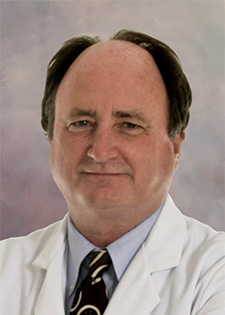You already know that calcium is good for your bones, but did you know it could save your life? Researchers have found a link between calcium intake and lower rates of ovarian cancer.
However, according to the research, calcium supplements won't do: women should get as much calcium as they can from foods.
 “In one study, women who got more than 1,100 milligrams of calcium a day from foods cut their ovarian cancer risk in half,” said David Helton, MD, a board-certified gynecologist with West Georgia Healthcare for Women, part of Tanner Medical Group. “This was compared with women who ate less than half that amount. Most women got their calcium from milk and other dairy products. Calcium supplements did not seem to affect risk.”
“In one study, women who got more than 1,100 milligrams of calcium a day from foods cut their ovarian cancer risk in half,” said David Helton, MD, a board-certified gynecologist with West Georgia Healthcare for Women, part of Tanner Medical Group. “This was compared with women who ate less than half that amount. Most women got their calcium from milk and other dairy products. Calcium supplements did not seem to affect risk.”
In other words, make sure you've “got milk.”
Experts advise all adults ages 31 to 50 to take in at least 1,000 milligrams of calcium a day.
“Those older than age 50 should get 1,200 milligrams a day, which equals about three to four servings of dairy products,” said Dr. Helton. “One cup of milk, a cup of yogurt, or one and a half ounces of cheese count as one serving and pack at least 300 milligrams of calcium each.”
To get more calcium, take the easy route and pour more milk. Most Americans get less than 1 cup of milk a day. Here are some ways to help you drink up:
- Flavor skim or low-fat milk with a fourth of a teaspoon of vanilla or almond extract.
- For a snack, blend milk with fresh or frozen fruit.
- Substitute milk for water when cooking oatmeal and creamed soups.
You also can boost your calcium without opening up the milk carton. Here are some tips:
- Consider buying orange juice, breads and cereals fortified with calcium.
- Stock up on calcium-rich snacks, such as low-fat yogurt, pudding and cheese and crackers.
- Get your veggies. Dark green, leafy vegetables — such as broccoli and spinach — are rich in calcium.
Along with warding off ovarian cancer, calcium also helps improve bone health and reduces the risk of osteoporosis. The vast majority — 99 percent — of the calcium in the body is stored in the bones.
“That makes getting enough calcium a real win-win,” said Dr. Helton. “It’s critical for bone health, but it also makes sense for defending against cancer.”
To find a gynecology specialist on staff at Tanner Health System, call 770.214.CARE (2273) or choose Find a Doctor.